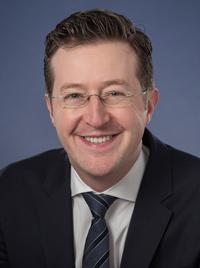Dr. Sacher’s research focuses on (i) the development of novel humanized PDX models to accurately recapitulate complex human tumor-immune interactions, (ii) understanding the role of novel immune cell populations including innate-like T-cell and myeloid populations in modulating anti-tumor immunity and the microbiome, (iii) utilizing cfDNA and soluble biomarkers to predict response and resistance to novel immunotherapies in solid tumors.
His lab has an emphasis on the development of novel immunotherapeutics and adoptive cell therapy in solid tumors, understanding mechanisms of acquired and primary resistance to immunotherapy, and identification of novel biomarkers for these agents.
Research Synopsis
My research focuses on both the development of novel immunotherapeutics as well as understanding the fundamental mechanisms that underpin anti-tumor immune responses. I have extensive interest and experience in the drug development and clinical trials evaluating immune checkpoint inhibitors, immune agonists, vaccine-based therapy, epigenetic therapy and adoptive cell transfer including TIL and CAR-T therapy. However, the rational development of novel immunotherapies requires an in-depth understanding of the complex interactions that occur between specific immune cell populations and tumor cells. These interactions underpin response, primary resistance and acquired resistance to tumor immunotherapy. To this end, my more fundamental tumor immunology research deals with four key areas:
- Humanized PDX models: Novel immunotherapeutics including PD1 inhibitors have revolutionized the treatment of multiple solid tumors including non-small cell lung cancer (NSCLC). These early successes have led to the development of myriad novel immunotherapies targeting other immune checkpoint and costimulatory molecules. Patient-derived xenograft (PDX) models have not been utilized effectively to evaluate novel immunotherapeutics due to the intentional absence of a functional immune system in these experimental models. The limited ability to evaluate the impact of these novel immunotherapies on tumor-immune interactions using in vivo models has led to a situation where the de facto proving ground for these agents has become human clinical trials leading to the high-profile failure of multiple novel immunotherapy combinations in NSCLC. A major focus of our lab is the development of novel humanized models with functional human immune components. We have sought to combine novel humanization approaches with implantation of NSCLC PDX tumors as the basis for a new model to evaluate the impact of specific immunotherapy combinations on complex human tumor-immune interactions. We ultimately seek to develop this approach as a new platform for immunotherapy drug development.
- Evaluation of novel innate-like T cell populations that mediate response to immunotherapy: Mucosal-associated invariant t-cells (MAIT cells) are innate-like t-cells that express a semi-invariant t-cell receptor (TCR) capable of recognizing proteins presented by an MHC-like molecule MR1. MAIT cells play a key role in the pathogenesis of inflammatory conditions including type-1 diabetes and possess the ability to directly infiltrate tissues and destroy specific cell populations. MAIT cells possess the ability to similarly infiltrate the tumor microenvironment and may play a role in mediating anti-tumor immune responses. Our group has extensive interest in evaluating the role of MAIT cells within the tumor immune microenvironment (TIME) of NSCLC tumors. Given the role of MAIT cells in mucosal immunity, we also seek to investigate their role as key mediators of the intestinal microbiome’s impact on anti-tumor immune responses.
- Plasma TCR sequencing and evaluation of cfDNA signatures to understand response to immunotherapy in early-stage cancers: Adjuvant immunotherapy is an attractive treatment strategy in stage I-III non-small cell lung cancer (NSCLC) given the potential durability of responses. Increasing evidence supports the efficacy of adjuvant immunotherapeutic strategies in NSCLC and multiple clinical trials are ongoing evaluating this approach. However, lack of understanding of the unique immunobiology of stage I-III NSCLC in this setting represents a key challenge to the development of novel adjuvant immunotherapeutic strategies. Our group is presently evaluating the potential utility of cfDNA-based approaches to monitoring response to immunotherapy including tumor-derived cfDNA, TCR sequencing and cfDNA-methylation. We ultimately seek to develop cfDNA-based assays as an important immunologic biomarker that may help to stratify patients with respect to likelihood of benefit from adjuvant immunotherapy as well as monitor potential response to these therapies.
- Defining the tumor-myeloid axis as a key predictor of response and hyper-progression in metastatic non-small cell lung cancer treated with a PD1 inhibitor: Myeloid subpopulations are increasingly recognized as central actors in modulating anti-tumor immunity. Tumor production of specific cytokines can drive stress myelopoiesis which is associated with expansion of myeloid populations with dysfunctional differentiation. Specifically, this leads to the accumulation of a heterogeneous group of immature myeloid cells collectively known as myeloid derived suppressor cells (MDSCs). MDSC infiltration into the tumor immune microenvironment (TIME) has been associated with poor response to immunotherapy. Furthermore, recent work utilizing syngeneic tumor models and conditional PD1 knockout in myeloid progenitors has demonstrated a key role for PD1 signaling and regulation of MDSC populations. A major focus of our lab is understanding the role of specific soluble factors in driving MDSC proliferation as a mechanism of resistance to PD1/PDL1 inhibitors in metastatic NSCLC.






 https://orcid.org/0000-0001-7865-2701
https://orcid.org/0000-0001-7865-2701